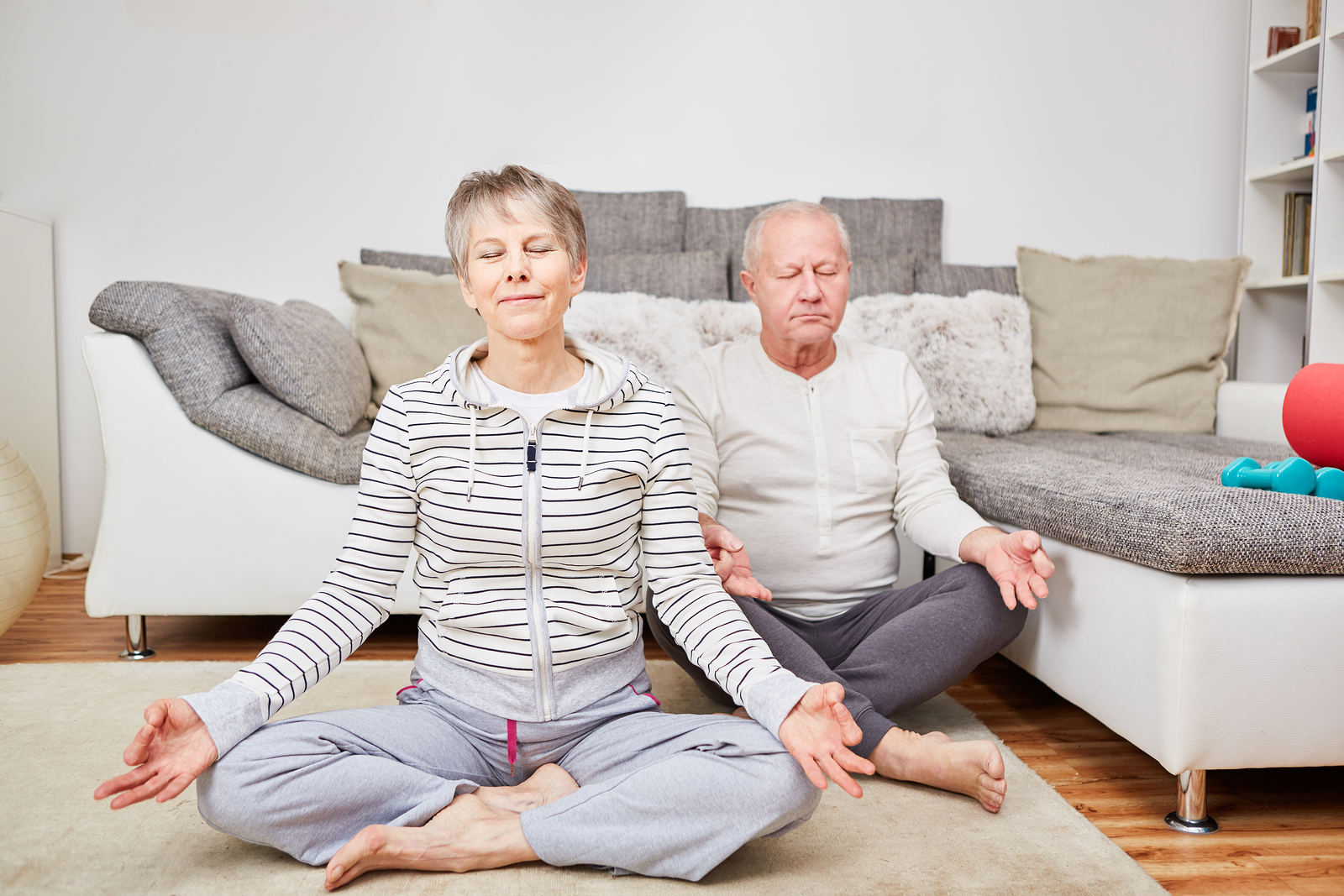Mindfulness myths explained
The term mindfulness – have you ever wondered what it really means? Could it help to get us through the Covid 19 pandemic situation in which we all find ourselves? Eugene Farrell, AXA PPP healthcare’s psychological health expert, certainly thinks so.
Mindfulness is an awareness of being
It teaches us to focus our mind on the here and now, to be aware of the space we are moving in, to concentrate on ourselves in that space, to reconnect with our body by paying attention to all that is going on at the present moment. This awareness of being allows us to notice and change what we are doing now rather than dwelling on it or even regretting it later.
It’s all too easy to function without noticing much – mindfulness can help to bring calm and grounding into our lives. Eugene Farrell explains:
“So many of us are guilty of forgetting to take the time to slow down and live in the moment. Some of us then anxiously fret about past or future worries so much so it makes us unwell. Our mental well-being is so important and many feel that mindfulness can help us to better cope with these troubles.”
A great deal has been written about mindfulness and there can be some confusion around what it means. Eugene Farrell helps us to understand some of the myths that have grown up around the practice.
Is there a difference between mindfulness and meditation?
Meditation is when you actively put some time aside to do something that is good for you, and there are all types of meditation. Mindfulness is twofold: it is a general awareness of the world and also a formal meditation practice. Mindfulness meditation is one of the most popular forms of meditation.
Mindfulness enables us to focus our mind on our experiences in the present moment and so concentrate on positive thoughts instead of negatively worrying about past or future concerns.
Silent meditation can help us make sense of our thoughts. Through our breathing, we can take notice of our stream of thoughts and feelings and allow them to flow without letting them control us in a negative way. We can learn to be more aware of our body too and the sensations of things around us.
We often lead our lives on ‘autopilot’ and so mindfulness can teach us how to actively notice life’s sensations such as taste, touch and smell. If we learn to notice these small things they can help to switch off our ‘autopilot’ and so give us new positive perspectives on life. Once we learn to really ‘notice’ our surroundings then it can lead to experiencing things in a renewed and non-critical way. Trying something new, such as not sitting in our usual chair or taking a different route to the park, can also help us to notice the world in a new way.
Being totally in the present helps to energise us and allows us to enjoy and value things more; like our family, relationships, holidays, food and so on. A great way to train to do this is through practising raisin meditation. This teaches us to learn to experience things, such as eating, in a different way.
Buddhism and Mindfulness
Practising Buddhism cannot be achieved without mindfulness but it is a spiritual way of being, dealing with happiness, sorrow and attachment. Mindfulness, however, can be practised quite well without Buddhism.
Mindfulness uses breathing to focus the mind and appreciate all that is around us, allowing us to notice but to let go. It can help us to deal with our problems by recognising how our thought patterns affect our thinking.
Incorporating spiritual Buddhist practices into mindfulness or practising mindfulness without the spiritual side is a personal choice – mindfulness can benefit everyone, no matter what the approach.
Can mindfulness only work in complete silence?
It is certainly beneficial to have a peaceful area to practice mindfulness, especially for a beginner. Sitting in a quiet space, away from all the bustling of life can make it easier to concentrate on the space you are occupying and your body and feelings than if you were in busier surroundings. However, you can also incorporate mindfulness into your day by being mindful of any sensation.
For instance, when you’re walking upstairs appreciate how the banister feels under your hand, when you sit in a chair think about where on your body the chair is touching or when you leave an area or a room look behind you and notice where you’ve been then where you are going.
Eugene explains “we need to wake up to the sights and sounds of the present moment; being aware when things happen helps us to understand and appreciate more.”
Incorporating mindfulness into the everyday
Is our mental well-being only affected by mindfulness?
Our mental well-being can be helped by practising mindfulness but research has shown that mindfulness training might also increase brain function. The University of Massachusetts Medical School conducted an eight-week programme which showed that the type of brain tissue linked to learning, memory, the way we regulate emotions and how we see the world increased after mindfulness training. In addition, eight separate areas of the brain were shown to have increased with mindfulness through a 2014 review study at the University of British Columbia.
Along with being beneficial for our minds, mindfulness may play a part in helping with physical conditions such as heart disease, IBS, chronic pain and addiction.
Can mindfulness make rapid gains?
Mindfulness can be practised at any age. It’s free and easy to do but it does take a little training to get the most out of it.
It’s like developing any skill, the more practice you put in the better the results.
Mindfulness can relax and comfort us. Eugene explains:
“Most of us spend most or all of our day skipping from one thought to another. We daydream. We think about the past and worry about what’s to come. We self-analyse and self-criticise. Mindful practice calms the mind and when we feel ourselves drifting into negative thoughts to focus on our breathing will make us feel calm again. A calm mind can positively change the way we see ourselves and our lives.”
Mindfulness isn’t the answer to everything and the mental health charity Mind suggest that if you have deeper issues that don’t improve after mindful practice then it may not be right for you. However, if you’re just struggling to find time in your day or to practice mindfulness by yourself then a course might be the answer and there are plenty to be found online.
Disclaimer
All content on Silversurfers.com is provided for general information only, and should not be treated at all as a substitute for the medical advice of your own doctor or any other health care professional. Silversurfers will not be responsible or liable for any diagnosis made by a user based on the content on www.silversurfers.com and we are also not liable for the content of any external websites or links from or to Silversurfers to any other websites. Please always consult your own doctor if you’re in any way concerned about any aspect of your health.
Melina - Assistant Editor
Latest posts by Melina - Assistant Editor (see all)
- Cream Cheese Orange Bars - May 2, 2024
- Top tips for hay fever sufferers - April 14, 2024
- Paysan Breton Cream Cheese Breakfast Wraps - April 12, 2024
- 4 Homemade Sweet Treats for Easter - March 24, 2024
- Playground Memories - March 10, 2024




















